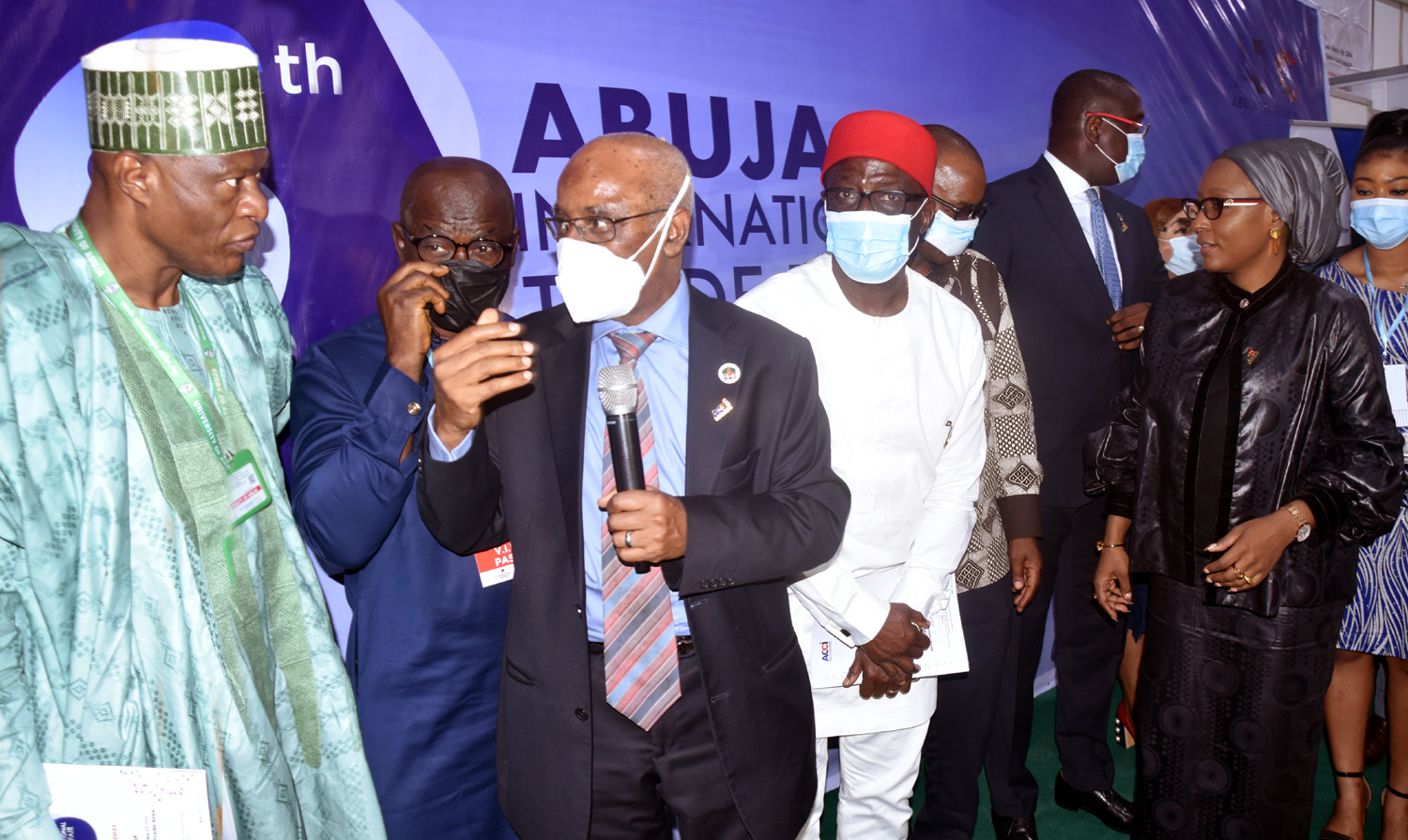Business
Covid-19: World Bank Approves $11.5bn For Nigeria, Others

The World Bank, has approved $11.5 billion in lending to Western and Central African countries for 98 operations to cushion the effects of Covid-19 pandemic.
The World Bank, in its 2021 Annual Report made available on Monday, posited that the gesture was to tackle crisis to green, resilient, and inclusive recovery.
“In fiscal 2021, the bank approved $11.5 billion in lending to Western and Central Africa for 98 operations, including $500m in IBRD commitments and $11.0 billion in IDA commitments. Revenue from Reimbursable Advisory Services agreements with one country was $700,000.
“To help countries in the region tackle the Covid-19 crisis, we are investing in health and expanding safety nets for their most vulnerable people. We are also supporting recovery by helping strengthen the social contract between citizens and governments, bolster job creation and economic transformation, improve human capital, empower women, and boost climate resilience”, the report stated.
The bank also said that it committed $1.5 billion through 12 development policy operations to support countries’ pandemic responses and recovery efforts.
It said it was providing governments with immediate fiscal relief while continuing to promote transparency and accountability and helping strengthen public procurement and revenue management.
“In Nigeria, we are helping the government implement fiscal measures to promote transparency and accountability, strengthen links between states and the federal government, and promote citizen engagement.
“In Cameroon, we are strengthening community accountability mechanisms in fragile contexts by improving service delivery for over one million people, many of whom are forcibly displaced.
“In Côte d’Ivoire, the bank and IFC are establishing the policy and regulatory framework for environmentally sustainable investments and providing partial credit guarantee schemes to protect small and medium enterprises”, the bank stated.
According to the global bank, it is providing $1.8 billion under IDA to scale up social safety nets across Western and Central Africa in a bid to strengthen social protection measures, recipient registries, cash transfer programmes, and delivery mechanisms to benefit about 40 million people, of which 20 million are Nigerians.
Business
Bayelsa Begins EIA On 60MW Power Plant

The Bayelsa Electricity Company Ltd, in collaboration with the Federal Ministry of Environment, on Friday, commenced the Environmental Impact Assessment (EIA) for the proposed 60-megawatt (MW) power plant.
The Tide’s source reports that the power plant project, led by the Bayelsa State Government, is in Elebele, on the outskirts of Yenagoa, the state capital.
The source also reports that the State Governor, Douye Diri, had announced plans to establish an independent power project to end the state’s reliance on the national grid and provide an uninterrupted power supply across Bayelsa.
The Director of Operations at the Bayelsa Electricity Company Ltd., Steve Bubagha Jnr., conducted the Minister of Environment, Balarabe Lawal, and his team around the project site.
Mr. Bubagha explained that the company planned to install a 60MW “plug and play” gas-fired turbine that would receive gas feed from the Oando gas manifold in Elebele.
He said the land area for the project is approximately 5.8 hectares, with 2.1 hectares currently being used.
“The Independent Power Plant is officially known as the ‘Yenagoa Power Project. This is a ‘Plug and Play’ Gas Turbine.
“What we mean by ‘plug and play’ is that the turbine is already set to be installed upon arrival from the manufacturers.
“We are only working on other components, so the turbine should be running in less than two years, or at most, in two years”, Bubagha explained.
Following the site visit, the environment minister, represented by Adimchinobi Okereke, emphasised that the purpose of the visit was to ensure the EIA process adhered to standard guidelines before granting final approval to the project.
He lauded the state government for initiating the project, noting that once completed, it would benefit Bayelsa and contribute to solving Nigeria’s power supply challenges.
Azibola Inegite, a professor and Dean of the Faculty of Science at Niger Delta University, and the EIA consultant for the project, assured that international best practices would be followed in conducting the EIA.
He emphasised that the EIA was essential for the successful execution of impactful land and environment-related projects.
On his part, the technical adviser on Print Media/Public Affairs to Governor Diri, Wisdom Ikuli, commended the Governor for his vision in executing the project.
He stated that the 60MW power plant would help reduce the state’s frequent power outages and boost business growth, thereby accelerating industrialisation.
A key part of the minister’s visit was the “Stakeholders Engagement Scoping Workshop for Environmental Impact Assessment of Proposed Gas Powered Plant and Gas Delivery Pipeline in Bayelsa State”.
The workshop brought together stakeholders from Elebele, whoch include the host community, and Kpansia, an impacted community in Yenagoa Local Government Area.
Business
Firm Unveils Solutions To Oil Logistics Challenges

A firm, Fortune Global Shipping and Logistics Limited, said it has concluded plans to unveil an excellent and cost-effective logistics solution for oil and gas logistics, project cargo, customs clearance, consolidation, and construction, among others, in Lagos State.
Announcing this in a statement on Friday, the company said the initiative would be unveiled during the 2025 Sub-Saharan Africa International Petroleum Exhibition and Conference.
It stated that the event is billed to take place in Lagos this week.
SAIPEC is an annual global event which focuses on harnessing a sustainable African energy industry through partnerships.
Fortune Global explained that the exhibition promises to engage with other key industry stakeholders, decision-makers, and experts across Sub-Saharan Africa’s energy supply and value chain.
“We invite you to experience more and find out about Fortune Global’s latest innovations in oil and gas logistics. Connect with Fortune Global Shipping and Logistics Limited at the Exhibition Booth N21, Eko Convention Centre, in Lagos”, the statement stated.
Business
Nigeria, Still Africa’s Largest Economy – World Bank

Nigeria remains the largest economy in Africa going by Gross Domestic Product (GDP), in spite of the challenges faced by yhe country’s private sector.
World Bank’s Country Director for Nigeria, Dr. Ndiame Diop, who confirmed this at the Country Private Sector Diagnostic (CPSD) and Stakeholder Engagement in Abuja, Friday, said while Nigeria receives far less Foreign Direct Investment (FDI) than its potential warrants, especially in comparison to countries like Indonesia and South Africa, it continues to hold its position as Africa’s biggest economy.
He said the CPSD report, set to be released in the coming weeks, will reveal the impact of private sector constraints on economic growth.
Diop noted that if targeted actions were taken to remove these obstacles, Nigeria’s economic potential would be significantly enhanced.
He explained that the current macroeconomic reforms have created a favourable environment for such changes.
He cited the country’s recent economic stabilization measures, particularly exchange rate market adjustments and improved access to foreign exchange, as critical steps that have already enhanced investment conditions.
The Country Director outlined four key sectors where strategic reforms could unlock massive investment and job creation.
He stayed that in the Information Communication Technology (ICT) sector, investment opportunities worth up to $4 billion could be realized, potentially creating more than 200,000 jobs.
In agribusiness, reforms could unlock $6 billion in investment and generate over 275,000 jobs.
The solar photovoltaic (PV) industry holds the potential for $8.5 billion in investment and more than 129,000 jobs, while the pharmaceutical sector could attract $1.6 billion and create more than 30,000 to 40,000 jobs.
For the ICT sector, he identified the high, unpredictable, and inconsistent right-of-way fees, levies, and informal charges, comprising 30 to 70 per cent of broadband rollout costs, as a major barrier.
According to him, addressing these regulatory inconsistencies would be a game-changer for broadband expansion.
He acknowledged that the National Economic Council has recognized this issue and that progress is being made through a World Bank-supported initiative.
He also noted challenges such as vandalism, limited financing for rural broadband expansion, and the need for competitive access to wholesale fiber.
Dr. Diop further noted that efforts are underway in collaboration with government agencies to resolve these issues, and the World Bank, the International Finance Corporation (IFC), and private investors are prepared to support broadband infrastructure development.
On solar power, Diop described Nigeria’s energy sector as difficult but noted that renewable energy access, particularly solar PV, has been a bright spot.
He explained that private sector investment in renewable energy has historically been hindered by high costs and unviable tariffs.
However, blended finance mechanisms supported by the World Bank and IFC have helped bridge this gap, making off-grid solutions more viable.
He noted the DES project, which aims to connect 17.5 million households and businesses to solar power, as evidence of growing private sector interest.
While the solar industry is expanding, he stressed that reforms to improve Nigeria’s grid electricity supply remain crucial for industrialization.
On her part, the Regional Director for Central Africa and Anglophone West Africa at the IFC, Dr. Dahlia Khalifa, stressed the importance of consistency in regulatory policies, particularly in customs duties and revenue agency fees.
She noted that unpredictability discourages private sector investment, as businesses rely on stable regulatory environments for strategic planning.
-

 Opinion2 days ago
Opinion2 days ago2050: Expectations For Poultry Enterprise
-

 Maritime2 days ago
Maritime2 days agoLASWA Deploys Data Management Tech In Water Transport
-

 Oil & Energy2 days ago
Oil & Energy2 days agoDrought Dims Hydropower’s Promise
-

 Business2 days ago
Business2 days agoFirm Unveils Solutions To Oil Logistics Challenges
-

 News2 days ago
News2 days agoPolice Rescue Kidnapped Victim, Recover Stolen Vehicle
-

 Sports2 days ago
Sports2 days agoEaglets Not In CAF’s U-17 AFCON Plans
-

 News2 days ago
News2 days agoPoliceman Commits Suicide In Niger
-

 Politics2 days ago
Politics2 days agoPrioritise Citizens’ Wellbeing To Avoid Dire Consequences, Don Warns Political Elite

